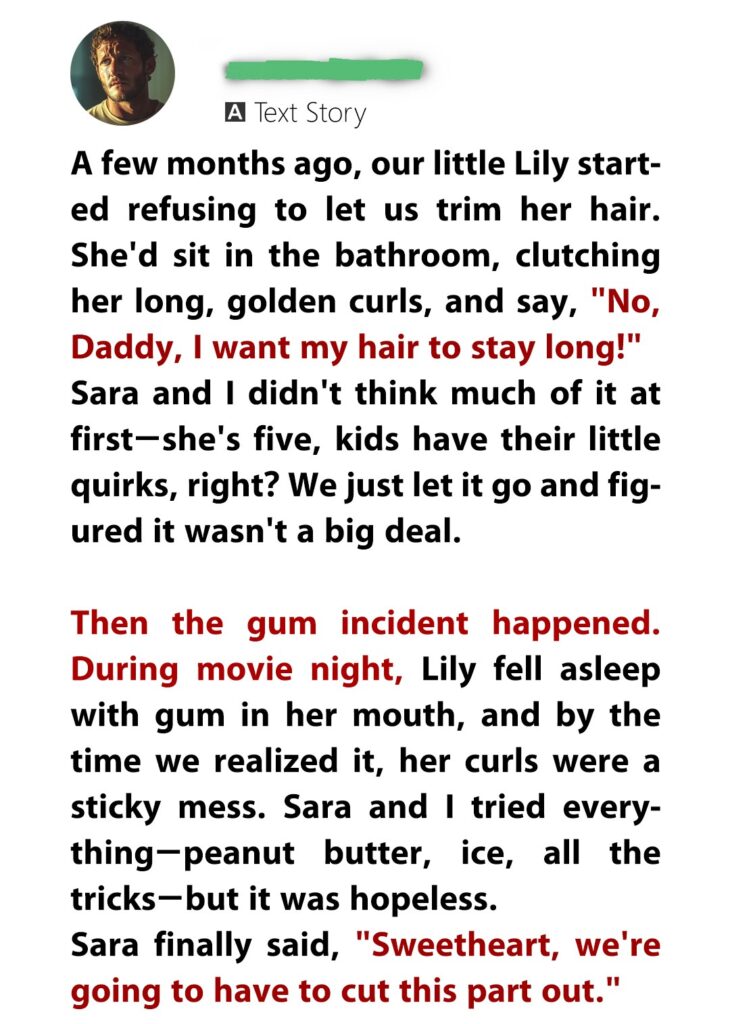Edward thought he knew his daughter Lily inside and out. At five years old, she was a whirlwind of laughter, curiosity, and stubborn charm. But when she refused to cut her hair—despite gum tangled deep in her curls—he didn’t expect the reason to shatter his world.
“I want my real daddy to recognize me when he comes back,” she whispered, clutching her hair like it held her identity.
Edward froze. He was her father. Or so he believed.
The revelation unraveled slowly. Lily had overheard fragments of adult conversations—Sara, Edward’s wife, had once confided in her mother about a past relationship. Lily, in her innocent logic, pieced together a fantasy: that another man, her “real daddy,” would one day return and need to recognize her. Her long hair, untouched and sacred, became her tether to that hope.
Edward and Sara were stunned. They hadn’t realized how deeply children absorb emotions, secrets, and silence. Lily’s refusal wasn’t rebellion—it was longing. A quiet ache for something she couldn’t name.
Instead of dismissing her feelings, Edward knelt beside her. “Sweetheart,” he said gently, “I’m your daddy, and I’ll always be here. But if you ever want to talk about anything—anything at all—I’ll listen.”

That night, they didn’t cut her hair. They held her close. And slowly, through bedtime stories and open-hearted talks, Lily began to let go—not of her hair, but of the fear that love might disappear.
